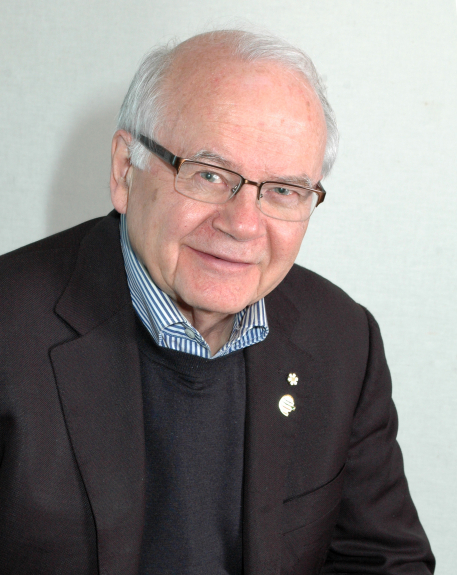1997 INDUCTEE Louis Siminovitch, PhD Cells, Genetics & Genomics, Global Health, Leadership in Organizational Development, The Early Days - Health Care Pioneers
May 1, 1920
(Montréal, Québec)
April 6, 2021
PhD, McGill University (1944)
2012: Order of Ontario
1989: Companion of the Order of Canada
See All AwardsAwards & Honours:
2012: Order of Ontario
1989: Companion of the Order of Canada
1986: R.P. Taylor Award, Canadian Cancer Society and National Cancer Institute of Canada
1981: Izaac Walton Killam Memorial Prize
1981: Gairdner Foundation Wightman Award
1980: Fellow of the Royal Society of London
1980: Officer of the Order of Canada
1978: Flavelle Gold Medal, Royal Society of Canada
1977: Queen Elizabeth II Silver Jubilee Medal
1967: Canadian Centennial Medal
1965: Fellow of the Royal Society of Canada
1941: Anne Molson Prize in Chemistry
Medal of Achievement Award, Institut de recherches cliniques de Montréal
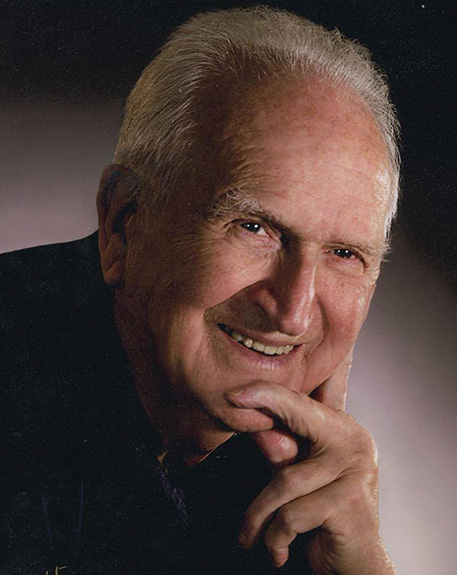
Became the architect and father of the application of genetics and microbiology in Canada
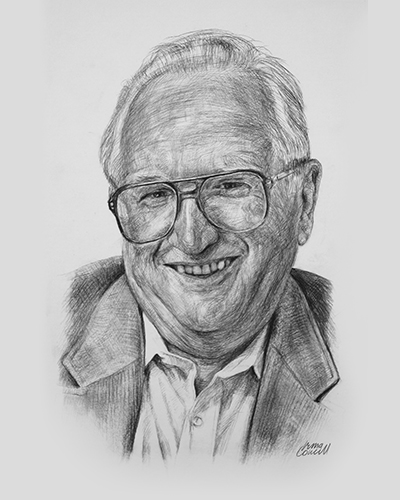
A molecular biologist, scientific leader and genetics pioneer
It would be hard to overestimate the profound influence Dr. Lou Siminovitch had on the scientific enterprise in Canada and beyond. From his early days in Paris studying how bacterial viruses (phage) infected and controlled bacterial cells, to his Toronto-based pioneering studies of induced mutations in mammalian cells, Lou constantly went where no-one had gone before to unearth new insights into the molecular basis of cell growth and its dysregulation in cancer cells. His insight extended not only to his own work, but also to the many young scientists he hired, mentored, and supported, first at the Ontario Cancer Institute, then at a new Department of Medical Genetics at the University of Toronto, then at the Hospital for Sick Children Genetics Department and finally at the Lunenfeld-Tanenbaum Research Institute at Mount Sinai Hospital. For more than 60 years Lou was relentless in his pursuit of excellence in science, and at the age of 100 was still writing letters to key political figures agitating for more research funding and for higher standards of excellence.
Key Facts
Made important contributions to bacterial and animal virus genetics, somatic cell and human genetics and cancer research
Published more than 200 scientific papers and journal articles
Was a key leader in the establishment of five international medical journals
One of few Canadians elected to both the Royal Society of London and the U.S. National Academy of Sciences
Served on a number of boards in both the private and public sectors
Relentlessly advocated for science excellence at all levels of government and with all national research organizations, and never compromised on his stringent definition of excellence
Professional timeline
Impact on lives today
Louis Siminovitch was Canada’s pre-eminent leader in biological science from the moment he returned to Canada from Paris when he took up a position in the Connaught Medical Research Laboratories and then moved to the new Ontario Cancer Institute as head of Biological Research. He then developed entirely new genetics research departments at the University and at the Hospital for Sick Children before creating a new research institute at Mt. Sinai Hospital. Along the way he had profound influence on the development of funding for basic science, and the peer review process, at both the Medical Research Council of Canada, and the National Cancer Institute. In Ontario he worked with the Ministry of Health to create provincial funding mechanisms, and later, with Dr. Cal Stiller, he guided the Canadian Medical Discoveries Fund to support commercialization of scientific discovery. On his death at 101, hundreds of his colleagues, students and research fellows paid tribute to his extraordinary impact on their lives.
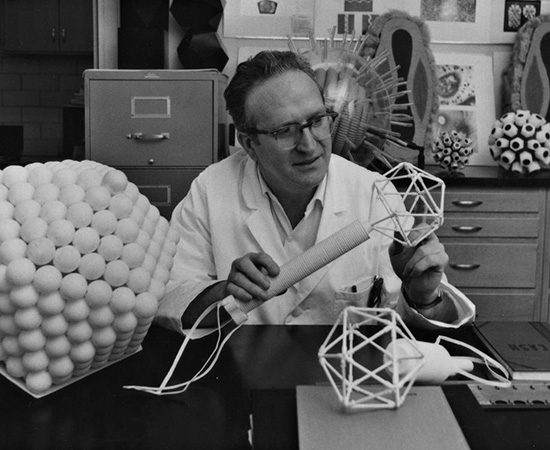
1997
-
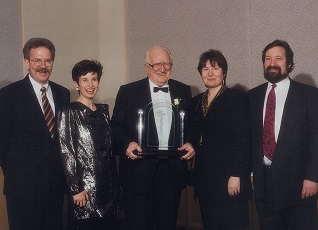
Lou Siminovitch inducted into the Canadian Medical Hall of Fame
London, Ontario
-
Siminovitch retired as research director of the LTRI
He remained connected to medical research as an advisor to the Rotman Research Institute at the Baycrest Centre for Geriatric Care and the Loeb Research Institute in Ottawa.
-
Siminovitch is a dedicated family man, a strong supporter of culture and an arts enthusiast along with his late wife Elinore
The Elinore and Lou Siminovitch Prize in Theatre was established in 2000 (now the Siminovitch Prize in Theatre), and is granted annually to an individual in recognition of their excellence and innovation in Canadian theatre.
-
As an innovative builder again, Siminovitch developed a research institute at Mount Sinai Hospital
Leadership in Organizational DevelopmentWithin a decade, the Lunenfeld-Tanenbaum Research Institute was one of Canada’s preeminent medical research institutions.
-
Siminovitch was honoured with the title of University Professor
Health and Medical Education & TrainingIn his various capacities, his passion for medical education instilled the pursuit of excellence in at least two generations of active biomedical scientists.
-

Dr. Lou Siminovitch appointed Geneticist-in-Chief at The Hospital for Sick Children
Leadership in Organizational Development, Cells, Genetics & GenomicsLou moved quickly to develop a new cytogenetics laboratory to detect chromosome abnormalities in newborns and in the unborn through prenatal diagnosis. The young scientists he recruited and mentored went on to discover disease genes responsible for Muscular Dystrophy (Worton and Ray), Cystic Fibrosis (Tsui and Buchwald), Tay-Sachs disease (Gravel) and Fanconi Anemia (Buchwald).
-
Throughout his career, many leaders and organizations sought out Siminovitch’s advice
Leadership in Organizational DevelopmentIn 1970, he served as the first head of the National Cancer Institute of Canada’s Research Advisory Group. Later, in 1982, he became its President.
-
Lou Siminovitch provides input to the fledgling stem cell research group with Drs. Till and McCulloch
Science and Research, Cells, Genetics & GenomicsLou was welcomed into the group where his insight led to the publication of elegant sequential transplant experiments to demonstrate that stem cells are capable of self-renewal, a key feature in the definition of a stem cell.
-
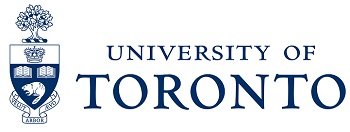
Lou Siminovitch joined the faculty at the University of Toronto
Health and Medical Education & TrainingAs a professor, he worked with department chair Dr. Harold Johns to shape the new Department of Medical Biophysics within the Ontario Cancer Institute and created the Division of Biological Research.
-

Louis Siminovitch joins the Ontario Cancer Institute
Cells, Genetics & Genomics, Leadership in Organizational Development, CancerAppointed head of biological research in 1963, he contributed critical knowledge to the field of stem cell and cancer research. Under his leadership, the Institute became a leader in North American cancer research.
-
Siminovitch returned to Canada as a fellow of the National Cancer Institute of Canada
He completed his fellowship at the Connaught Medical Research Laboratories in the University of Toronto.
-
Upon completion of his PhD in Chemistry from McGill University, Siminovitch shifted his focus to the life sciences
After three years with the National Research Council in Ottawa, Siminovitch received a Royal Society fellowship to train alongside André Lwoff, Jacques Monod and Franҫois Jacob at the Pasteur Institute in Paris.
1944
You have to be a scientific entrepreneur.
Additional Resources:
- ‘I’m still here’: Celebrating the 100th birthday of Lou Siminovitch, a giant of Canadian science
- Video: Celebrating the 100th Birthday of Dr. Lou Siminovitch | Gairdner Foundation
- Excerpts from the Video History of Medicine in Canada | Friends of CIHR
- Video: Tribute to Lou Siminovitch PhD | Toronto Medical Historical Club & Dept of Molecular Genetics
- The Siminovitch Prize | About Elinore & Lou Siminovitch
- CMHF Laureate biography - Louis Siminovitch

